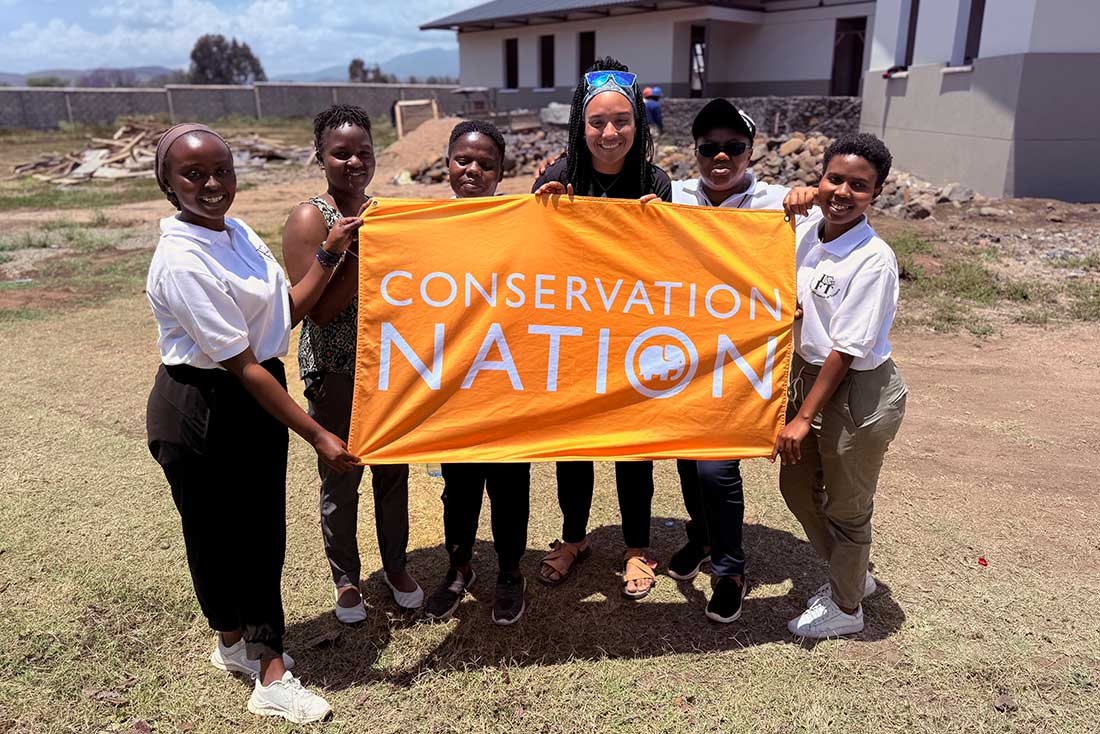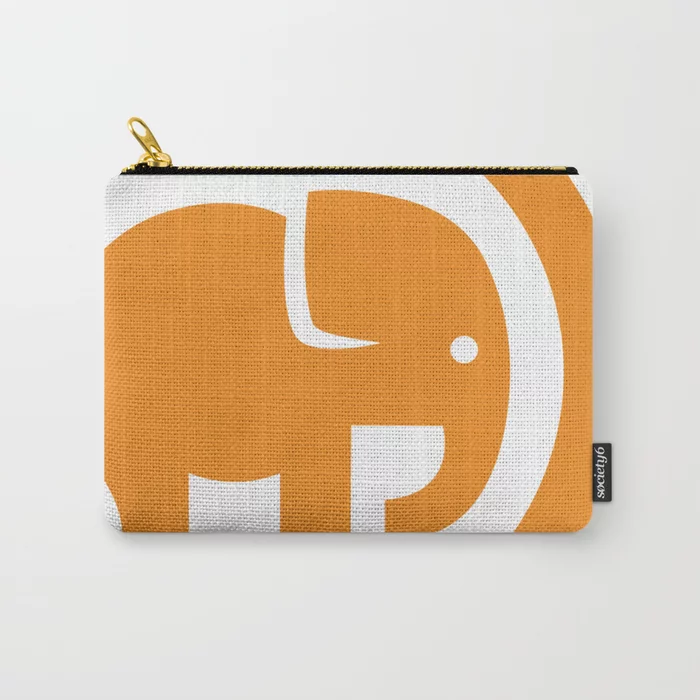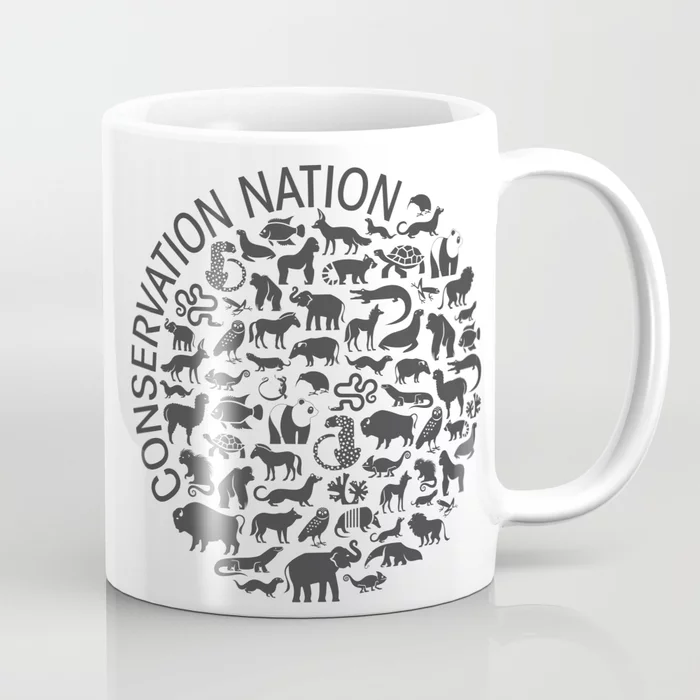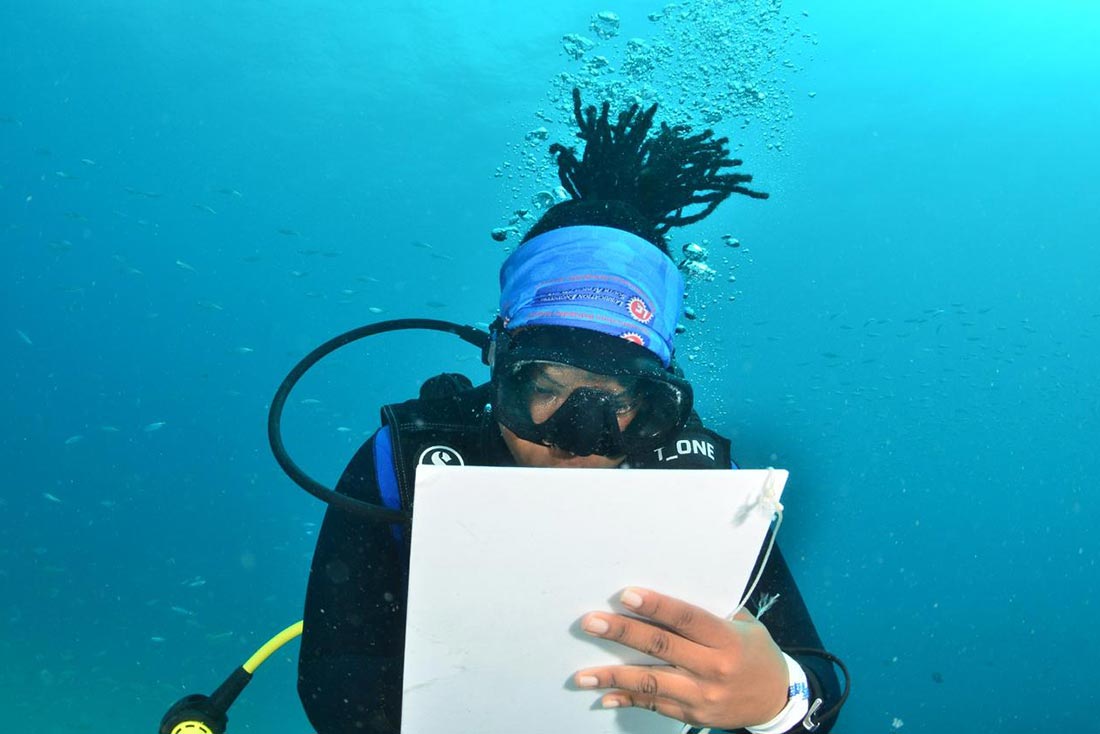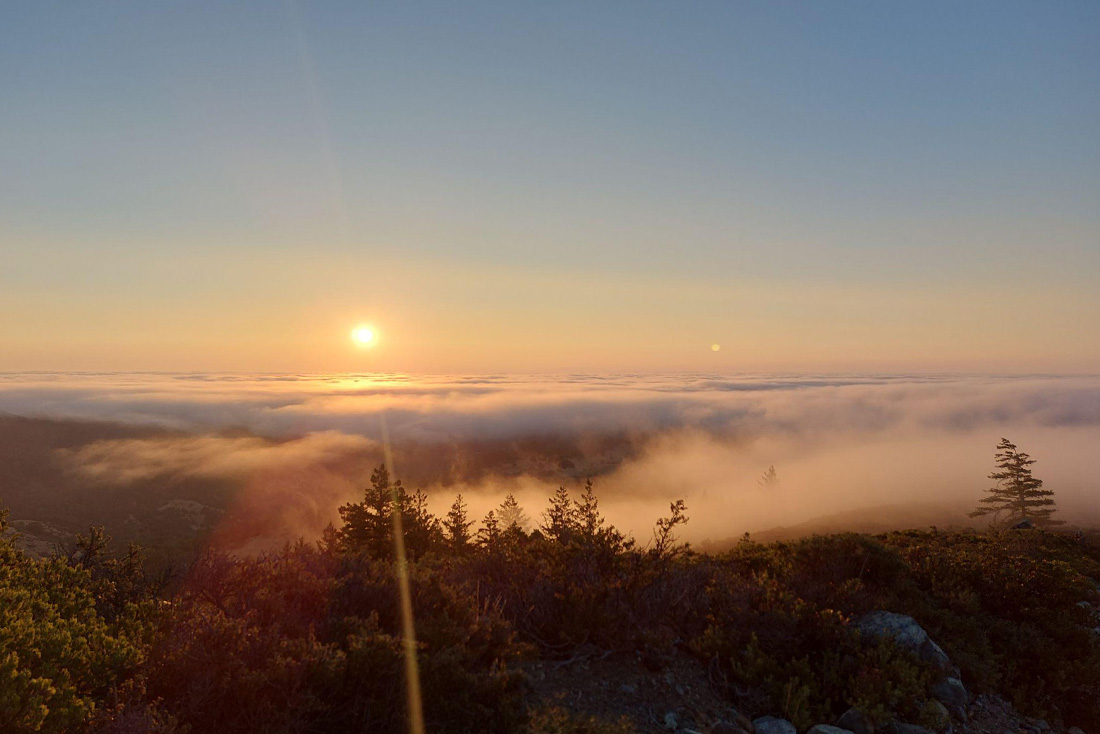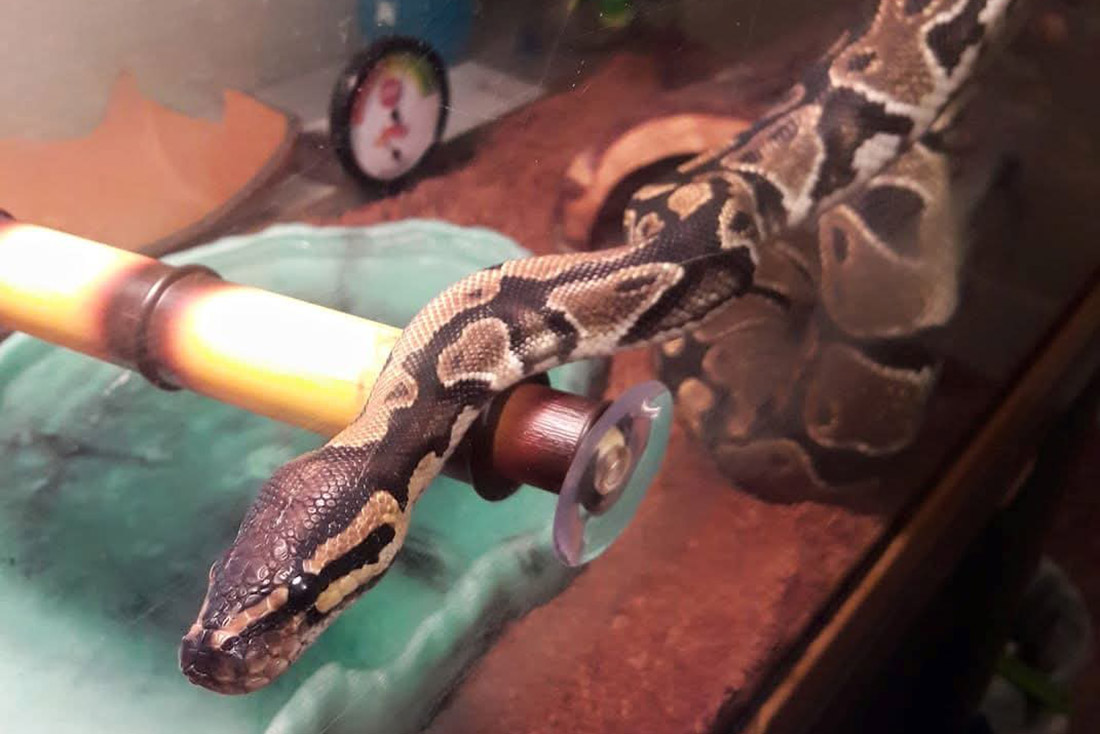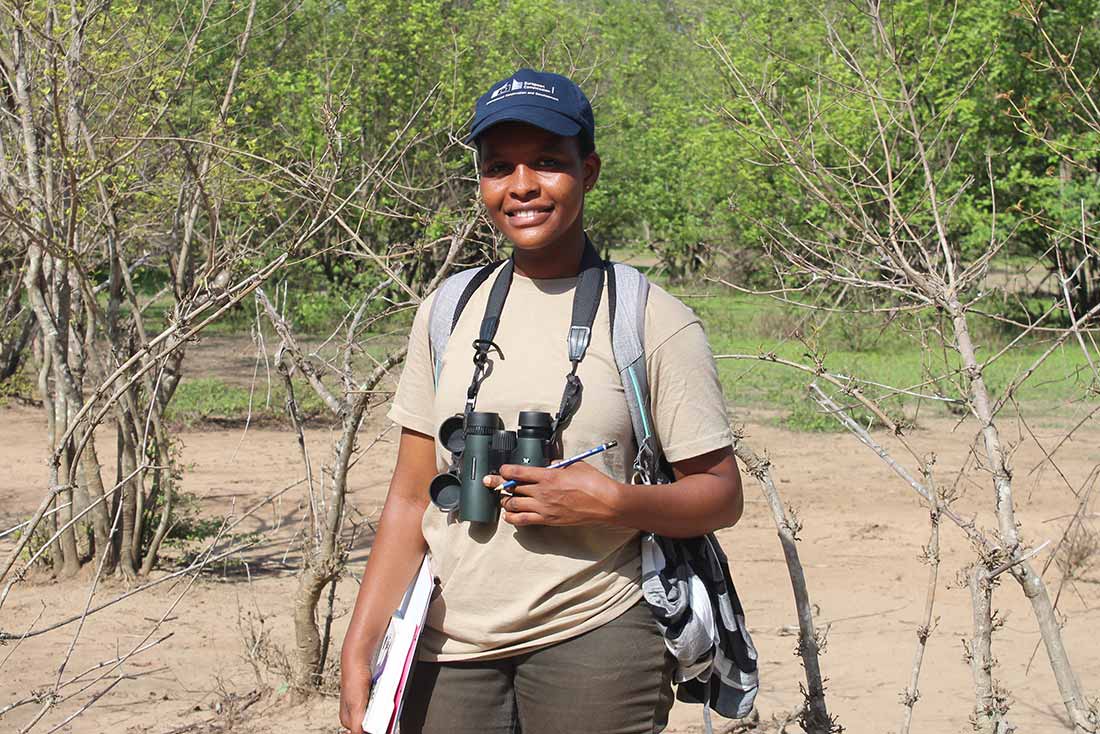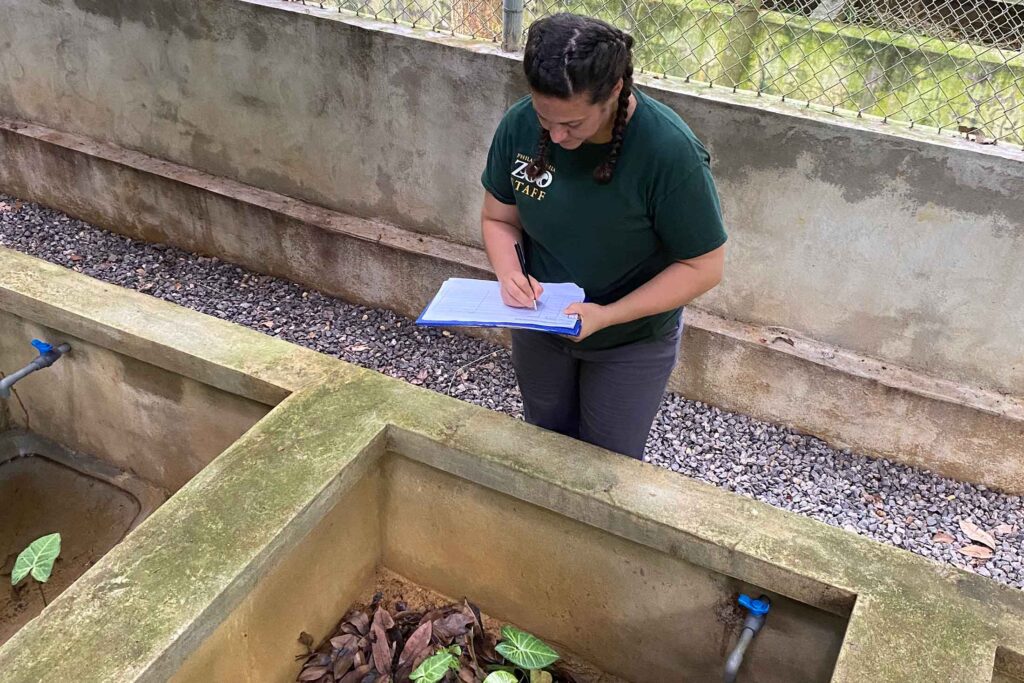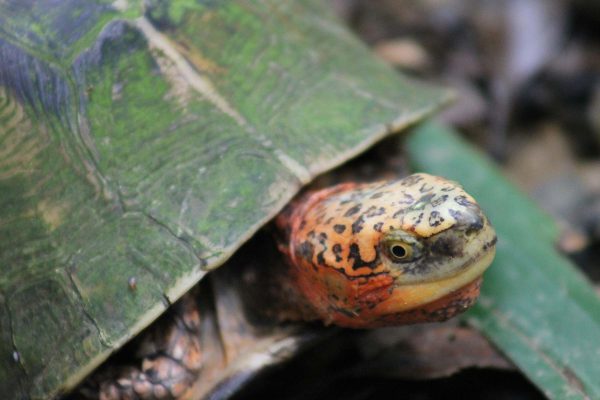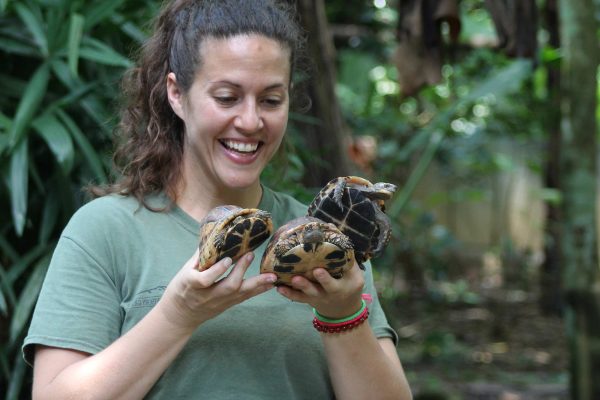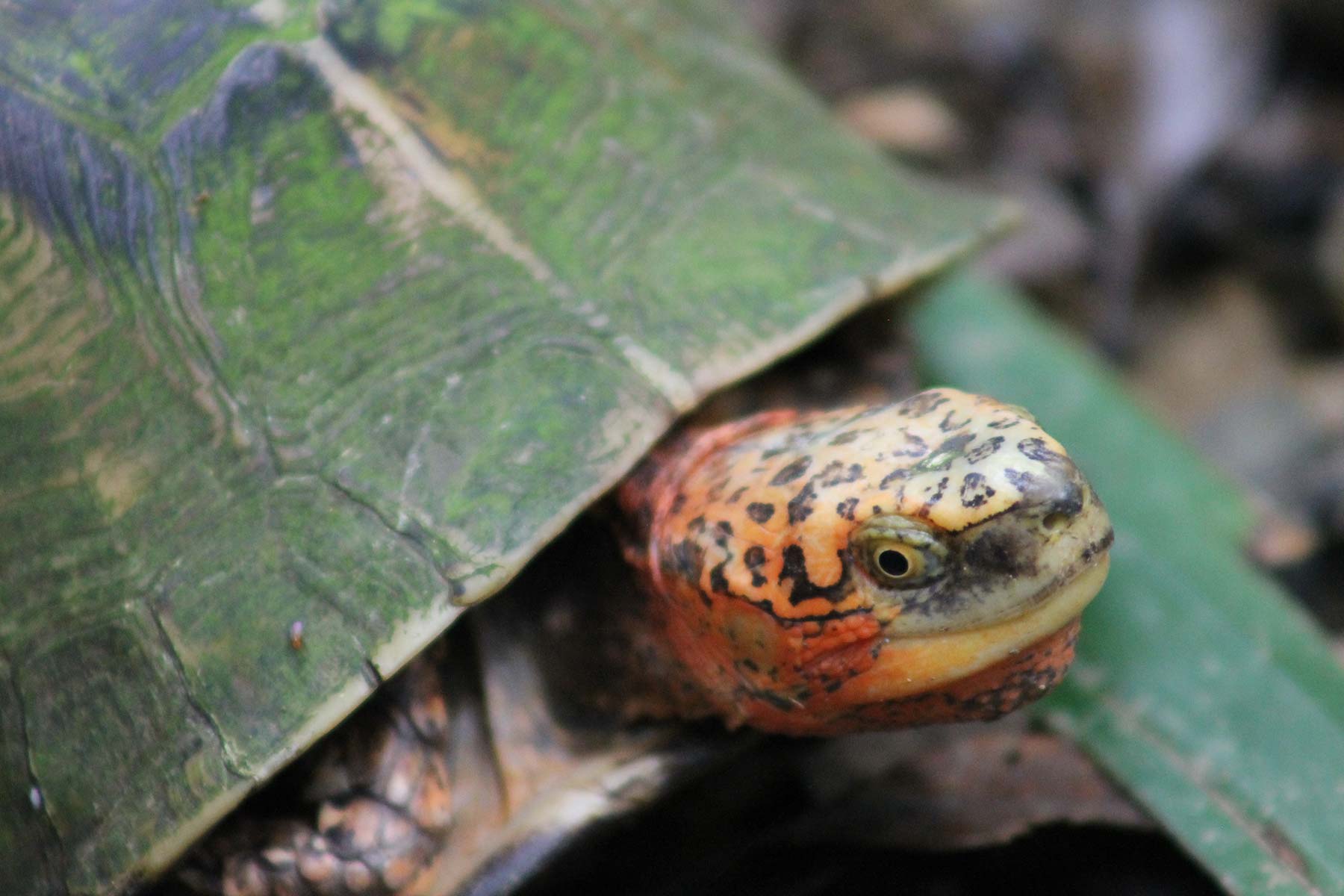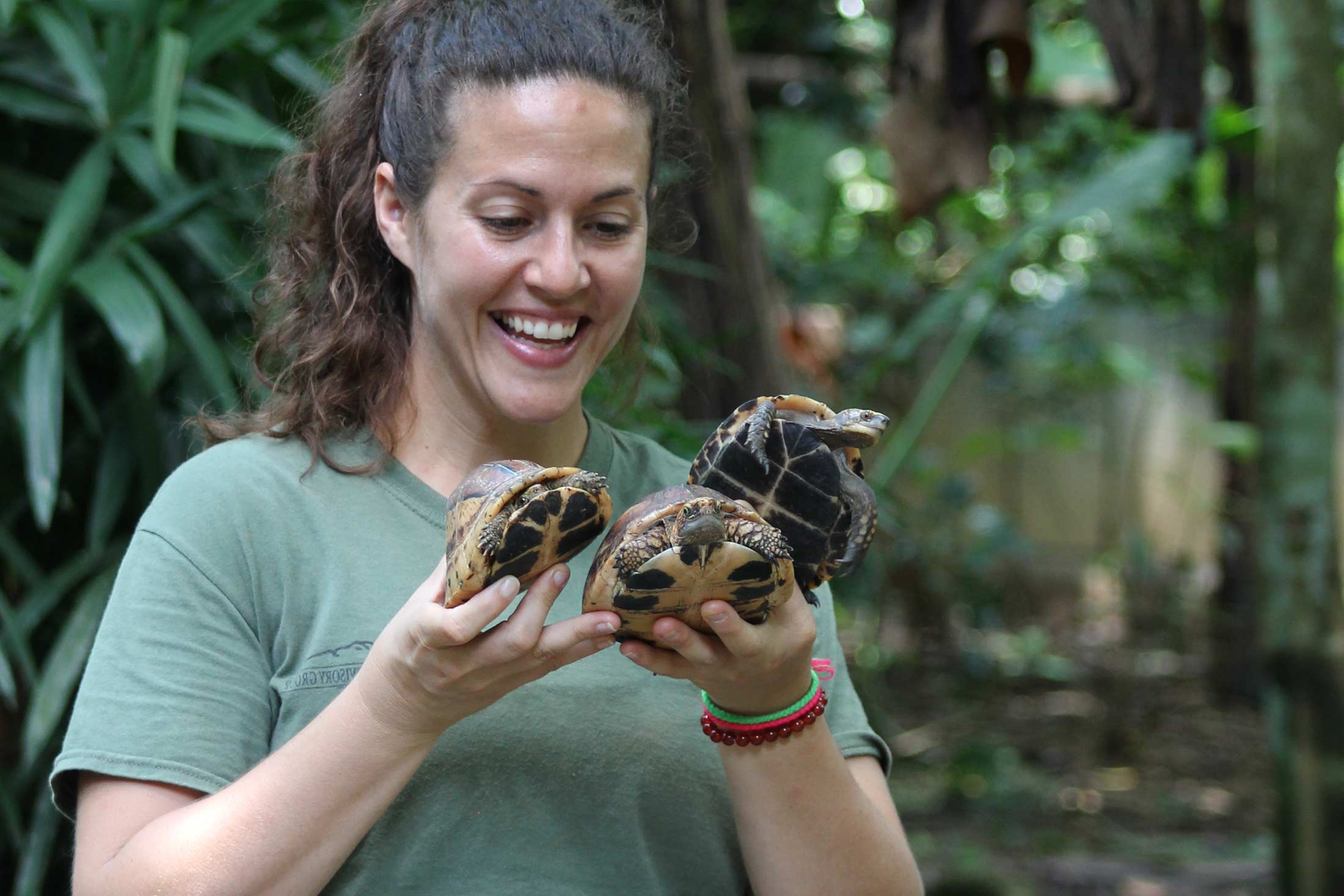Trip Part 1: Assisting with Turtle Reproduction
My trip to Vietnam finally began in mid-August at the Turtle Conservation Center (TCC)—a rescue, rehabilitation, and education outreach facility in Cuc Phuong National Park. After I dropped off some supplies, Thuy, TCC’s animal manager, showed me the new construction that had taken place since my last visit in 2017. When we reached the facility housing the southern Vietnamese box turtles (Cuora picturata), we chatted about improving the care for these critically endangered chelonians. Our discussion included how to raise the facility’s temperature during the winter and methods for increasing the turtles’ breeding success (to date, the TCC has never experienced successful reproduction in this species). After discussing some techniques I have used during my zoo career to elicit copulation, we paired up the turtles and began observing their behavior.
Fortunately, we didn’t have to wait long! Within a couple of days, we saw one of the five pairs successfully copulate and two other pairs exhibiting reproductive behaviors. I am confident that the TCC will successfully breed this species in the near future and begin to develop a facility-bred colony for repatriation (i.e., release into the wild).
Over the next few days, we continued monitoring the breeding and spruced up some of the turtle habitats. On August 23rd, we headed to central Vietnam to see some newly identified sites for wildlife rescue facilities and community outreach programs. I was looking forward to seeing the conservation-related progress in these areas—particularly in the communities near potential release sites for southern Vietnamese box turtles and Bourret’s box turtles (Cuora bourreti).
Trip Part 2: A Firsthand Look at Turtle Conservation Efforts
After a trip to the Deo Ca National Forest and a 10-hour train ride to Hue, I traveled with staff members of the Asian Turtle Program (ATP) to two Bourret’s box turtle sites: the Saola Nature Reserve and Bach Ma National Park. During past interviews with community members in these areas, we learned that while most people knew that Bourret’s box turtles were a protected species, they did not fully understand the penalties associated with illegal turtle collection. As a result, the ATP erected billboards (which we had the chance to see during our trip) to fill this knowledge gap. Aside from conducting interviews, ATP staff have also attended numerous community meetings—it was clearly evident in our interactions with locals that both of these efforts have led to a stronger relationship with community members.
We spent our last night in Bach Ma National Park, where we viewed the location set aside for numerous wildlife rescue facilities. The park recently added their first facility (for bears) and plans to build a Bourret’s box turtle facility. While there, we also had the opportunity to look for turtles in the field. Even though we didn’t find any, we enjoyed viewing a park ranger’s photos of two species he recently encountered. His pride and excitement for his images made it clear how invested he was in saving the turtles.
Reflections and Future Plans
What an unforgettable trip! As evidenced in their animal care and conservation programs, the TCC continues to expand upon their capabilities. Seeing the habitat of both southern Vietnamese box turtles and Bourret’s box turtles—along with gaining a firsthand view of the challenges related to successfully implementing conservation practices for both of these species—gave me an entirely new respect for the work of the ATP staff.
In the near future, I plan to present the details of my trip to my fellow staff members at the Philadelphia Zoo. I am beyond grateful to Conservation Nation for supporting me during my involvement in this incredibly important work. Please keep an eye out for more updates in the future!

